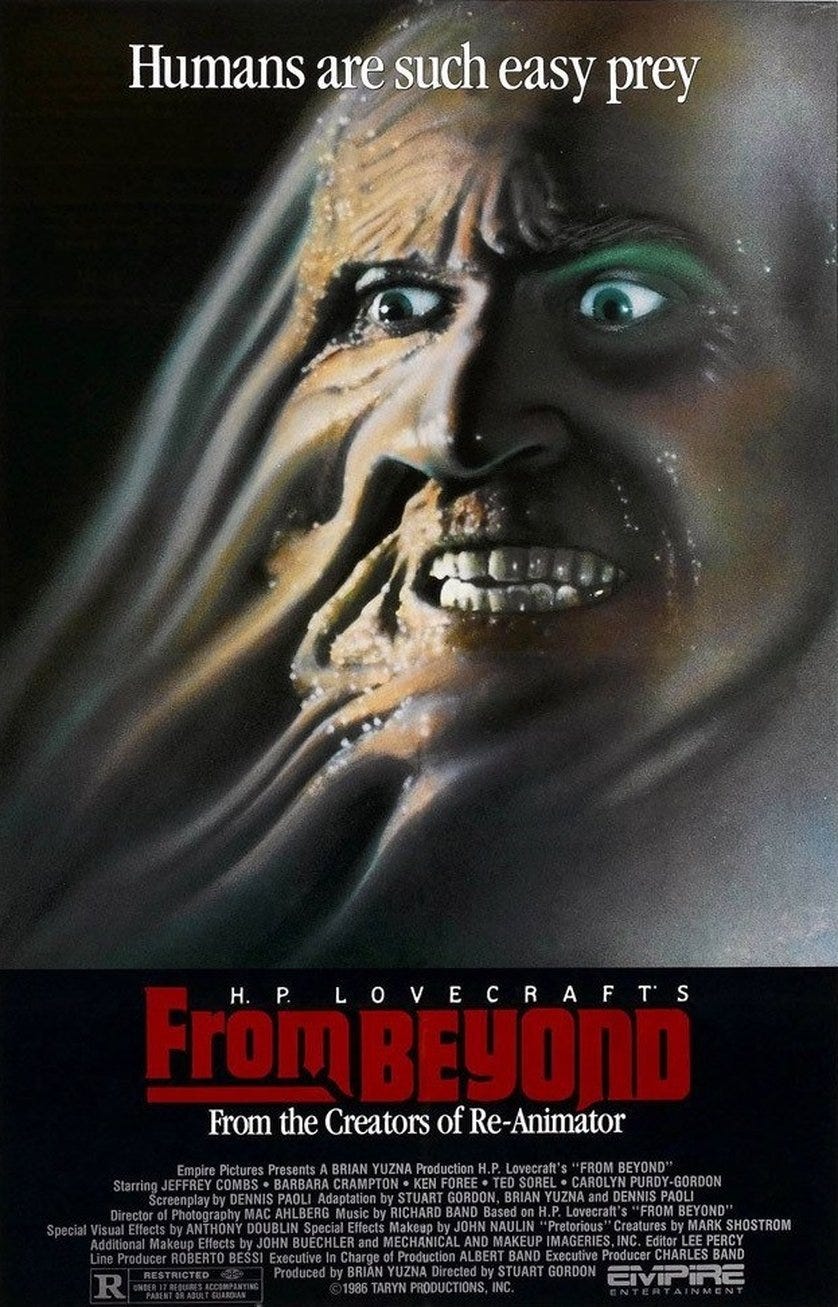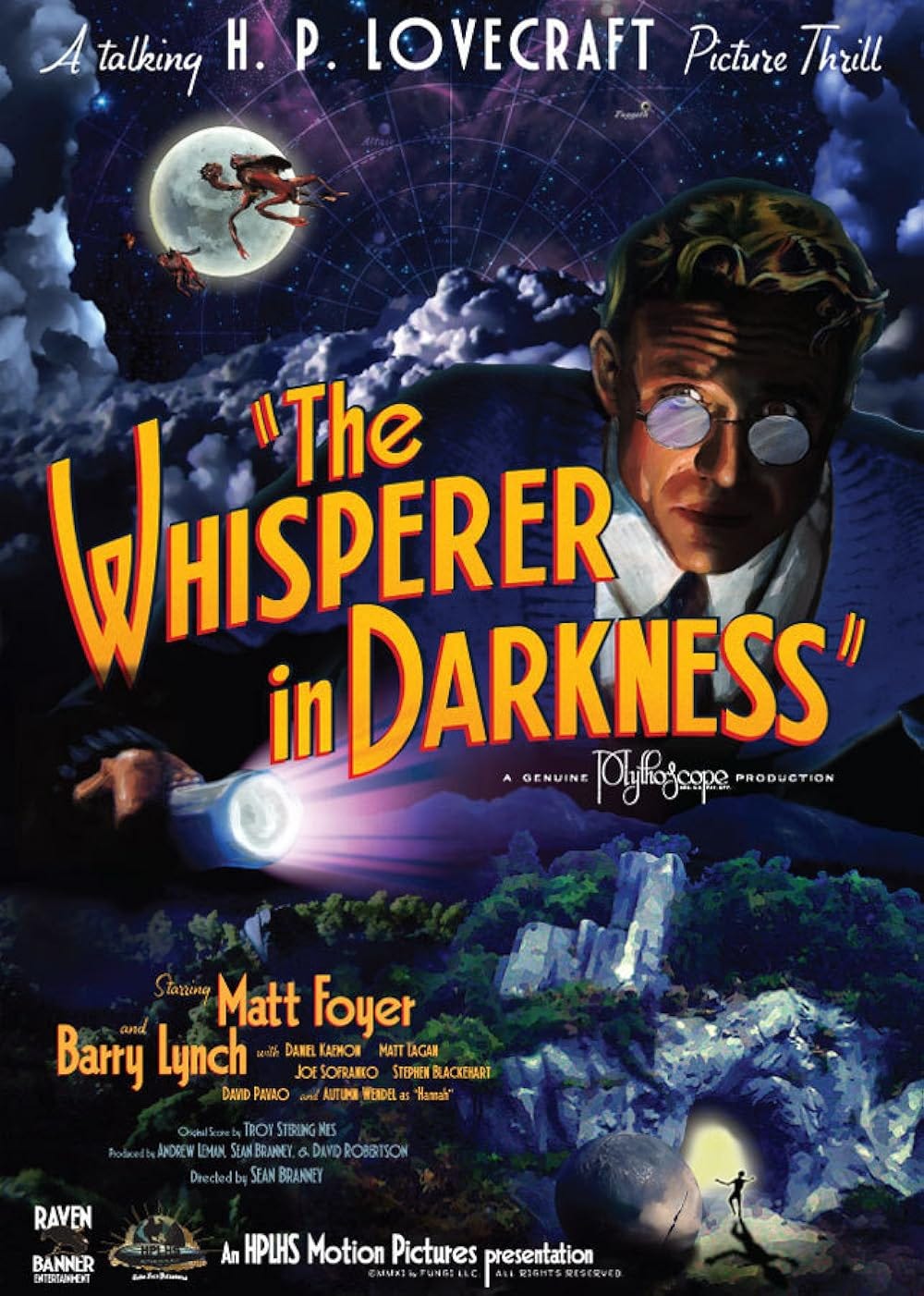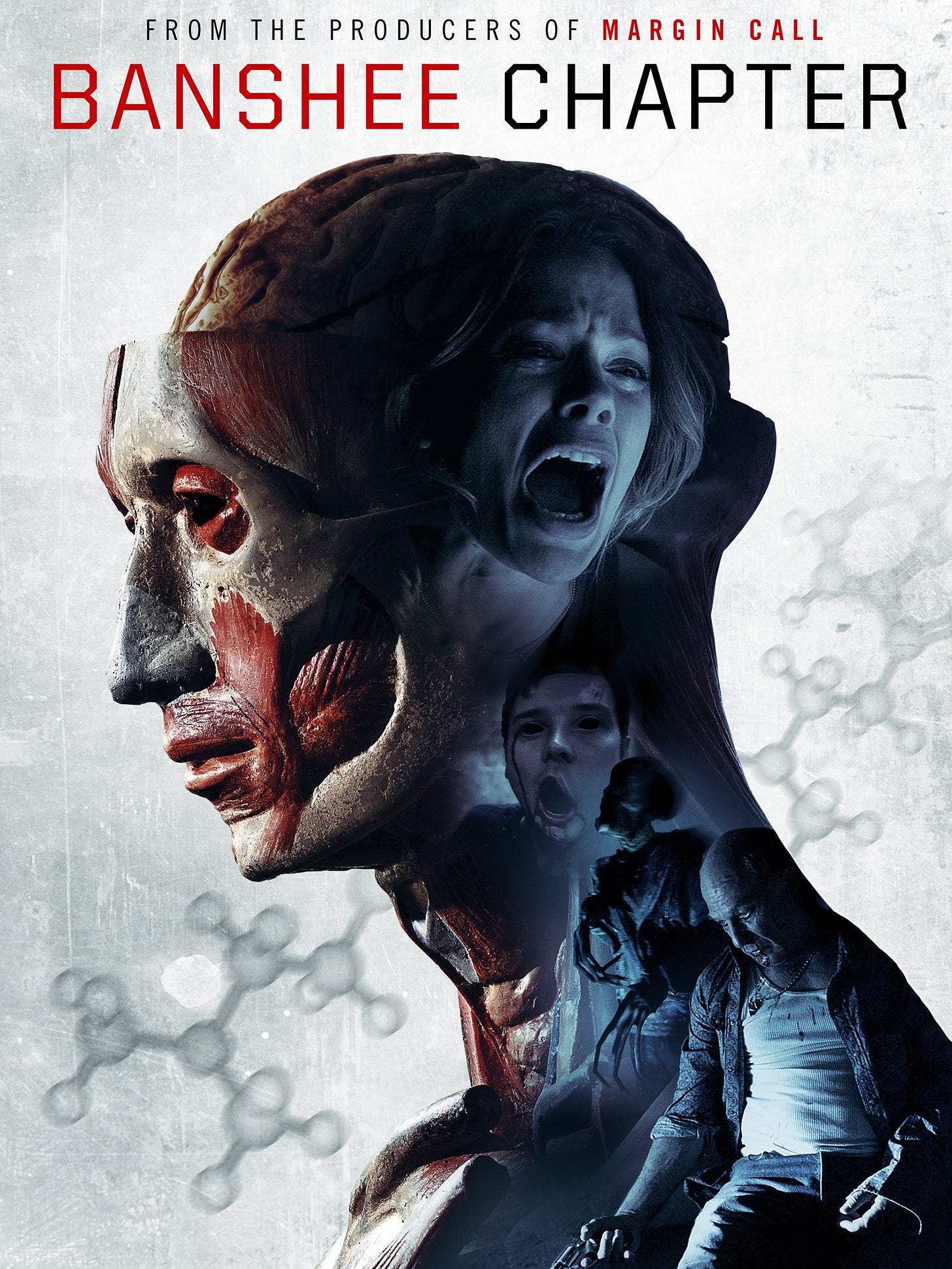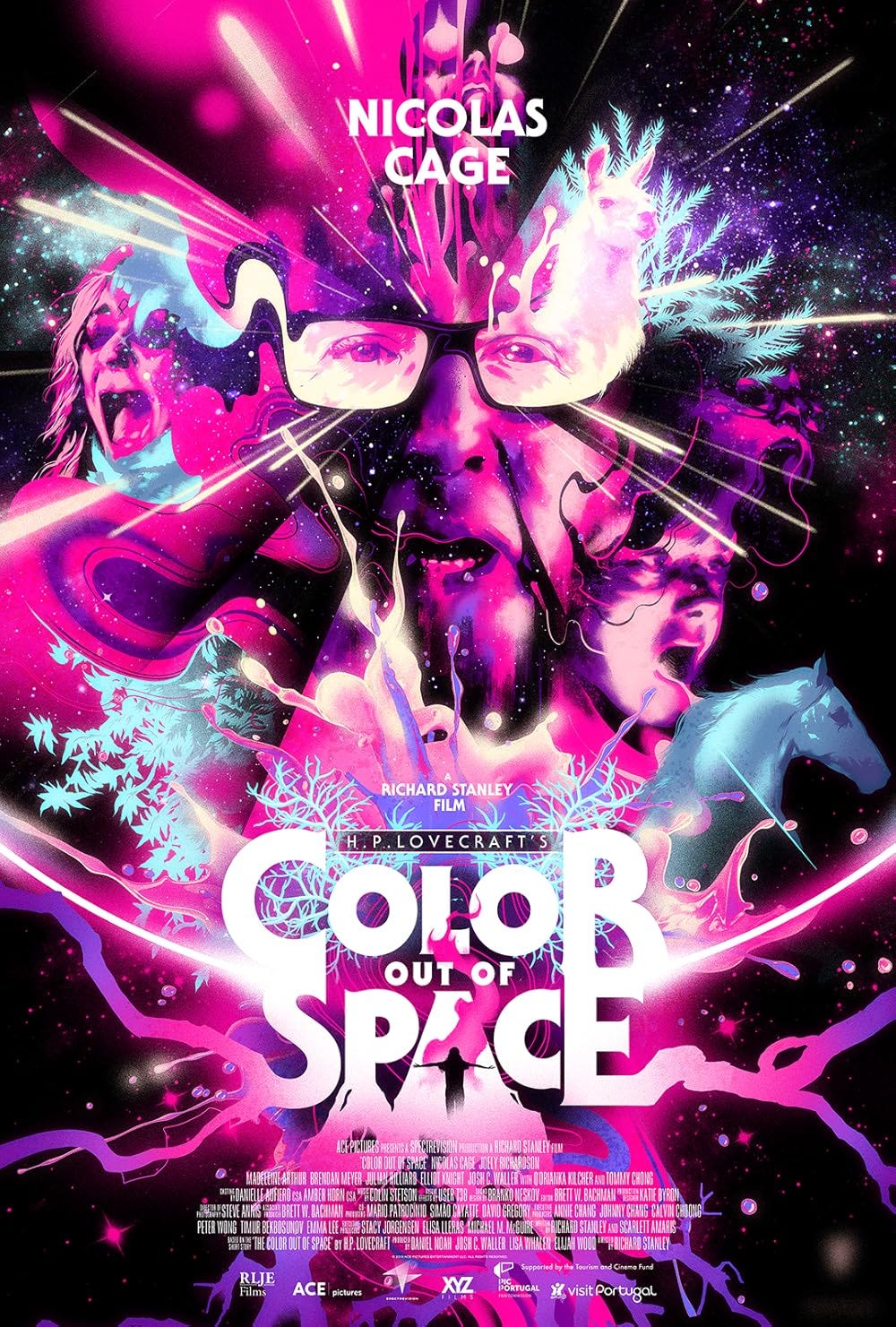The Incomprehensible Horror of Lovecraft Adaptations
Some of my favorite films based on the works of H.P. Lovecraft
I am a pretty big horror fan. Shocking, I know. What might actually come as a bit of a surprise is that cosmic horror is quite possibly my favorite subgenre of horror. I’ve devoted plenty of words to vampires, werewolves, slashers, and all manner of supernatural terrors, but I’ve spent very little time discussing cosmic horror here. That is partly due to me wanting to do a proper deep dive into the history of the subgenre and partly due to just waiting for a good reason to write about it. Great news! I found a reason to write about it.
As you are likely aware, cosmic horror is nearly synonymous with the works of H.P. Lovecraft. Actually, it’s literally synonymous. Another term for cosmic horror is Lovecraftian horror, and that pretty much sums it up. I’ve been a fan of Lovecraft’s stories (not so much the person) for a very long time, and I recently had the opportunity to revisit “The Call of Cthulhu” (arguably Lovecraft’s most famous story) as part of a book club. I followed that up with watching a film adaptation of that classic, and inspiration struck: why not write about my favorite film adaptations of Lovecraft stories? Please clap. Anyway, here are some of my favorites.
Re-Animator (1985) directed by Stuart Gordon
No list of Lovecraft adaptations is complete without Stuart Gordon’s many contributions, and Re-Animator is easily his most famous. “Herbert West—Reanimator” was Lovecraft’s riff on Frankenstein, and it was published in 1922. Truth be told, it is not one of my favorite Lovecraft stories. It’s a bit too derivative and a lot too racist for my tastes. Fortunately, Stuart Gordon’s take is so wildly different in tone that it’s almost unrecognizable from the source material. Gordon goes for a more comedic approach aided by an absurd amount of gore. Jeffrey Combs is fantastic as Herbert West, and we’re treated to an early performance by horror icon Barbara Crampton. It’s just the right amounts of goofy, gory, and sleazy.
From Beyond (1986) directed by Stuart Gordon
We have another Gordon adaptation! While Re-Animator is his most popular Lovecraft adaptation, From Beyond is my personal favorite. Based on the 1920 short story of the same name (though it wasn’t actually published until 1934), this adaptation tones down the comedy and ups the cosmic horror. Jeffrey Combs and Barbara Crampton both return as actors for this film, and the legendary Ken Foree joins the cast as well. This film is about an experiment to stimulate the pineal gland in humans with the unintended consequence of opening a pathway to another dimension populated by horrible monsters. It rules. Also, Jeffrey Combs ends up with a phallic protrusion emanating from his forehead at one point, and Barbara Crampton dresses up in a black leather dominatrix outfit.
The Resurrected (1991) directed by Dan O’Bannon
This one is a hidden gem. I first saw it on basic cable years ago, and one specific scene at the end stuck with me for the rest of my life. I could not remember the name of it for the life of me, and I eventually got to the point where I assumed there was some sort of Mandela Effect happening wherein this movie never actually existed. Then in 2023, Matt Howell from the amazing Bronze Age Monsters podcast mentioned this movie to me and unlocked all of those memories. I immediately tracked down a copy, and it has once again become one of my favorite Lovecraft adaptations. It’s an adaptation of The Case of Charles Dexter Ward, a novel written by Lovecraft in 1927 and published in 1941. It’s about a private investigator (played by John Terry) hired to investigate the strange behavior of a scientist named Charles Dexter Ward (played by Chris Sarandon). The more that’s uncovered, the more things spiral out of control. It’s a very atmospheric movie that has some really cool practical effects late in the film.
Dagon (2001) directed by Stuart Gordon
Another Stuart Gordon film! “Dagon” (written in 1919) is the first Lovecraft story I ever read. It’s very short (a scant 2,216 words), so I was very curious to see how it would be adapted into a feature film the first time I watched it. The answer is pretty simple: it isn’t based on that short story. It is instead based on Lovecraft’s 1936 novella called The Shadow Over Innsmouth. The Shadow Over Innsmouth is one of Lovecraft’s most popular and critically acclaimed works (and one of my personal favorites), so I wasn’t exactly disappointed by this development. I was, however, very confused. I had an opportunity not too long ago to attend a Q&A session with filmmaker Brian Yuzna (a producer on this film), and I finally had the mystery of the film’s title answered for me. It was apparently Yuzna himself who had the title changed, and it was simply because he thought Dagon sounded cooler. Fair enough! While this film is sorely lacking Jeffrey Combs and Barbara Crampton, it makes up for it with plenty of disgusting human-fish hybrids. It also gives me an excuse to post one of the funniest series of tweets I’ve ever read.
Savage.
The Call of Cthulhu (2005) directed by Andrew Leman
It’s the movie that inspired this piece! As mentioned previously, “The Call of Cthulhu” (written in 1926 and published in 1928) is easily the most famous story Lovecraft ever wrote. That makes it all the more surprising that it didn’t receive a proper film adaptation until 2005. Even more surprising, this adaptation is a forty-seven minute silent film made on a shoestring budget by the H.P. Lovecraft Historical Society in an attempt to make it appear as though it was made shortly after the original story’s publication. It’s very clever and effective. The film is extremely faithful to the source material (hence its short runtime), and it uses filming and special effects techniques that would have been contemporary in the 1920s. There are some very cool stop motion animation sequences involving the eponymous Cthulhu as he terrorizes our protagonists. I highly recommend checking out this hidden gem.
The Whisperer in Darkness (2011) directed by Sean Branney
This was the H.P. Lovecraft Historical Society’s second attempt at a film adaptation of Lovecraft’s works. I just watched this one for the first time this past weekend, and I’m happy to say that it’s another strong effort. Based on the novella of the same name (written in 1930 and published in 1931), this adaptation also attempts to mimic the style of films from the decade in which the novella was originally published. That means this film emulates the style of the early Universal monster movies like Dracula (1931) and Frankenstein (1931). Unlike the previous film, this one clocks in at a hefty 104 minutes. I was prepared to declare this movie my favorite Lovecraft adaptation of all time until the third act rolled around and included a radically different ending than the novella complete with some very unfortunate CGI. Despite that, this is still an excellent adaptation that nails the tone and atmosphere of the original novella.
Banshee Chapter (2013) directed by Blair Erickson
This is the first (and only) repeat adaptation on the list as it also adapts “From Beyond,” but it does so in a much different way. For starters, it replaces the mad scientist angle with government conspiracy theories revolving around the MKUltra program and experiments with the drug DMT. More importantly, this adaptation incorporates elements of found footage. It also boasts a pretty impressive cast despite its small budget with Katia Winter in the lead role as an investigative journalist and Ted Levine in a supporting role as a Hunter S. Thompson style counterculture writer. It does a good job of setting a creepy tone steeped in paranoia.
Color Out of Space (2019) directed by Richard Stanley
This one is probably my favorite Lovecraft adaptation. Based on the 1927 short story of the same name, Color Out of Space is a psychedelic nightmare that combines grotesque body horror with a bonkers Nicolas Cage performance to great effect. It follows a family whose property is impacted by a meteorite that unleashes an extraterrestrial force that infects and changes anything it comes into contact with. It really taps into what makes cosmic horror so terrifying by portraying something we cannot comprehend or reason with. Its motives and nature are truly unknowable, and there is no clear way to easily solve the problem. The characters are merely at its mercy.
There are plenty of other Lovecraft adaptations out there (including even more from Stuart Gordon) as well as films inspired by Lovecraft without being straight adaptations, so don’t be afraid to branch out and find your own favorites.












